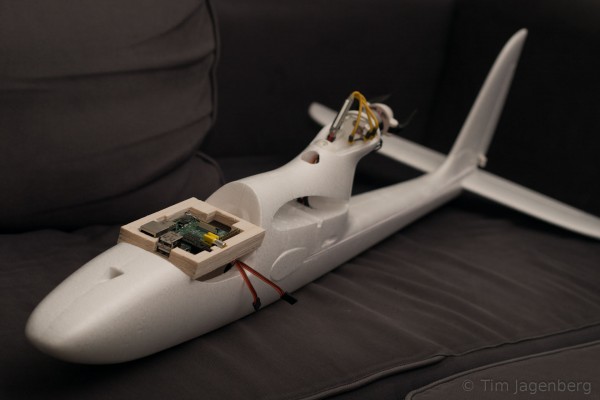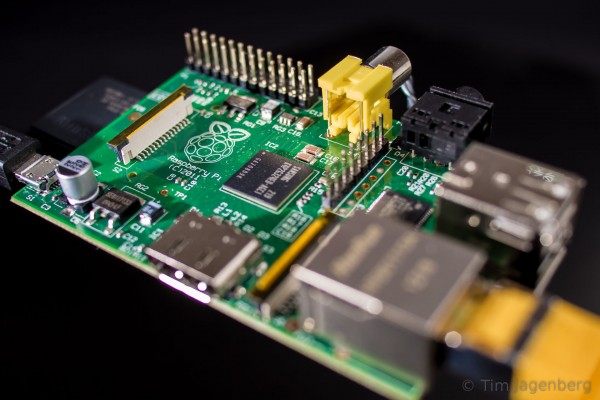RaspberryPylot made it!
With perfect weather and a great ground-team supplying me with food, the RaspberryPylot successfully completed its maiden-flight today. A laptop with gamepad, a wifi-connection using two simple USB dongles, an I2C servo controller and a Raspberry Pi and it’s ready to go:
Control via the gamepad was very comfortable and easy. Two analogue sticks for elevator, rudder, and ailerons. Two buttons to increase and decrease throttle and another two buttons to control the ailerons as flaps (flaperons). We didn’t test the master/slave mode today, but one can attach two gamepads and use one master button to switch between both with independent control profiles for each mode. In principle one could pass over the control of only one single axis at a time.
Many thanks to the CRRCSim team for creating such a fun way of training pre-flight.
Cheers
Tim








